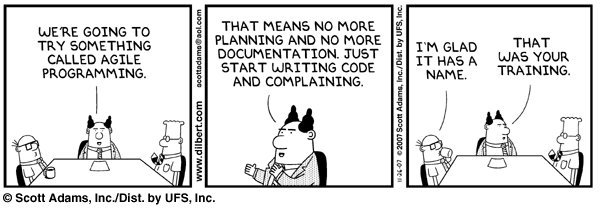A few months ago, I decided not to finish my PhD in literature, and instead return to my prior career as a programmer. It was a huge decision. Since then, I’ve been freelancing and job hunting, with varying degrees of effort and success.
My biggest concern was to avoid repeating my experiences in the Bay Area dot-coms. Ah, those days of youthful innocence! Back then, getting paid to write code seemed like the most incredible thing ever. What more could you want? Needless to say, I burnt out quickly. The industry and people were insane, code quality was subordinate to unreasonable deadlines, and most important of all, I didn’t feel invested in the project ideas I worked on.

I’ve learned that mission is very important to me. It’s why I’ve enjoyed grad school and and teaching, and why I’ve been good at them: I could get behind what I was doing. When I left, it was because I decided the profession and the current market weren’t right for me, not because I stopped believing in education, literature, and critical thinking.
So this time around, I’ve sent out resumes very selectively. Sadly, finding interesting companies was harder than I expected. And the companies I did want to work for had stringent requirements for certain credentials. Over time, my standards fell. I interviewed at a company working on mobile phone and web integration, and they made me an attractive offer. Though it wasn’t perfect, there were many good things about it, and I could see myself there for the next few years.
Then I got an email out of the blue. A friend had mentioned me to Crosscut, “a guide to local and Northwest news, a place to report and discuss local news, and a platform for new tools to convey local news.” They’re a group of established journalists thinking creatively about using the web while maintaining high standards of quality for regional coverage. Wow, I thought. New technology + socially important writing. Cool.
I’ll be starting a part-time position there next week.
Oh, there are aspects of the job that could be better. But it felt right to sign on to a project that I thought was worthy and important, even if I’m not making an insanely high salary or using the absolute coolest technology (read: python). How serendipitous that Giles Bowkett (whose blog I read regularly) should write today about “The Job I Want Next“: “Alternating between work and art was a mistake. I want to address my artistic interests in a consistent, dedicated way, and that includes programming.”
I’d like to keep as many of my interests consistently in my life as well, instead of jumping back and forth. It’s a good way to guarantee waking up each morning excited about the day. Sadly, it’s not easy to achieve. But I feel like I’m getting a little bit closer to it.
